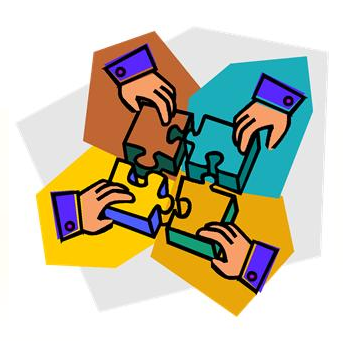eDiscovery Daily Blog
Having the Right Technology is Only One Piece of the Puzzle: eDiscovery Trends
We all get the eDiscovery technology is changing – in large part because the demands of eDiscovery are changing. Amazingly enough though, it’s not just about the technology – as a recent article discusses, it’s as much about the training on how to use the technology as it is about the capabilities of the technology itself.
In Corporate Counsel (A Journey of Self E-Discovery, written by Frank Ready), the author speaks with several eDiscovery and technology experts regarding the needs and challenges of selecting eDiscovery providers and training on eDiscovery tools. For example, Debbie Reynolds, data privacy officer at Eimer Stahl, describes the process of evaluating contracts with eDiscovery providers as a pendulum, a process by which every few years firms take a look at their ongoing budgets and expenditures to reevaluate whether or not they would be better served by bringing eDiscovery process in-house.
“About every three years you can kind of reconsider, ‘Are we doing the right thing? Are we looking at the right software? Do we have the right staffing?’” Reynolds says.
Investing in an array of high-powered eDiscovery tech and software is all well and good, but putting it into the hands of an untrained staff is still akin to tossing a set of Porsche keys to someone who slept through the entirety of drivers ed. As David Hasman, litigation support manager at Bricker & Eckler, says, “The reality of it is that if you don’t have talent to drive that technology, that technology is useless.”
“Really, the biggest spend from a client’s perspective when you’re facing litigation is typically the discovery. … You as a lawyer better be able to talk to your client and educate them on the process, why it’s important and the costs associated with it,” explains Joseph Tate, director of eDiscovery and practice advisory services at Cozen O’Connor.
To be sure, corporate legal departments aren’t immune to the whims of foot-dragging folks either. George Socha, co-founder of EDRM and a managing director in BDO’s forensic technology services practice, pointed out that some companies have never had a reason to focus on eDiscovery. Still, a sudden spike in litigation can force their hand.
But necessity does not always translate to enthusiasm, at least in the eyes of some of the companies that Socha has spoken to about starting down the eDiscovery path. “Their response is, ‘You’ve got to be kidding? This is what’s going on? This is insane,’” Socha says.
But, as we have all heard before, insanity is doing the same thing over and over again, hoping for a different result. As Tom O’Connor and I discussed in our April webcast (Discovery Isn’t Just for Litigation Anymore), growing data privacy concerns with the General Data Privacy Regulation (GDPR) and California Consumer Privacy Act (CCPA) and increase in harassment claims with #MeToo and rising corporate malfeasance concerns have led to a lot of potential compliance and investigations needs with regard to discovery that organizations have today whether or not they ever lead to litigation. In short, most organizations are likely to have some need today regarding eDiscovery, even if they never have any litigation. As a result, more organizations than ever will not only have a need for eDiscovery technology, they will also have a need for training: training to not only understand how to get the most out of the technology, but also training on best practices regarding eDiscovery in general. This means an increased emphasis on certifications like the Certified E-Discovery Specialist (CEDS) Certification from ACEDS, as well as trainings and certifications on the eDiscovery technology itself.
That’s one of the many things great about our industry – there’s always a lot of new things to learn!
So, what do you think? How does your organization address technology and best practice training needs? As always, please share any comments you might have or if you’d like to know more about a particular topic.

Sponsor: This blog is sponsored by CloudNine, which is a data and legal discovery technology company with proven expertise in simplifying and automating the discovery of data for audits, investigations, and litigation. Used by legal and business customers worldwide including more than 50 of the top 250 Am Law firms and many of the world’s leading corporations, CloudNine’s eDiscovery automation software and services help customers gain insight and intelligence on electronic data.
Disclaimer: The views represented herein are exclusively the views of the author, and do not necessarily represent the views held by CloudNine. eDiscovery Daily is made available by CloudNine solely for educational purposes to provide general information about general eDiscovery principles and not to provide specific legal advice applicable to any particular circumstance. eDiscovery Daily should not be used as a substitute for competent legal advice from a lawyer you have retained and who has agreed to represent you.

